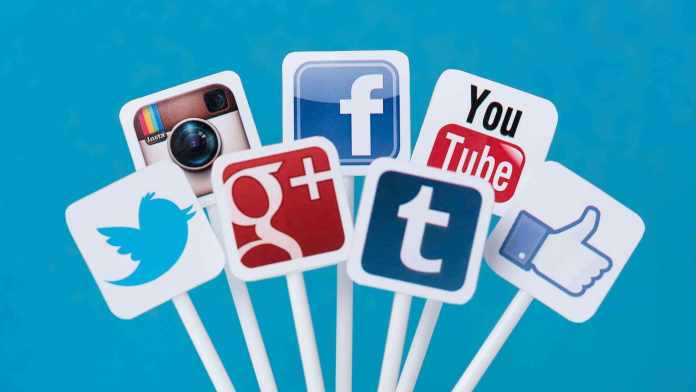In recent years, social media has evolved significantly and is now a powerful tool for amplifying philanthropic initiatives across the globe. Philanthropy significantly contributes to society, and social media can positively impact it. If you are looking to establish your presence in the philanthropic world, it is a smart move to harness social media’s vast potential. Social media provides an essential platform for donors and beneficiaries to connect and enhance the delivery of philanthropic initiatives. Whether you are a nonprofit organization, a donor, or a beneficiary, social media platforms make it easier to create awareness, gain support, and sustain philanthropic efforts. In this blog post, Sherief Abu-Moustafa explores the important role of social media in amplifying philanthropic initiatives.
Table of Contents
1. Social Media Amplifies Reach
Social media platforms like Facebook, Twitter, and Instagram are cost-effective ways to reach a large, diverse audience. Non-profit organizations use social media to expand their reach and connect with potential donors globally. For instance, Charity: water, a non-profit organization that provides clean water to people in developing countries, has leveraged social media to raise over $415 million in donations. They use social media platforms to share stories, photos, and videos that showcase their impact and motivate people to support their mission.
2. Social Media Boosts Engagement
Social media has become a fundamental tool for organizations seeking to build engagement with supporters and create an online community passionate about a common social cause. Through social media channels, organizations can share behind-the-scenes glimpses, recognize volunteers, and promote event updates, among other interactive features. For instance, platforms such as Twitter Chats, Facebook Live, and Instagram Stories encourage audience participation and foster an environment of two-way conversation. In Australia, the Movember Foundation leverages social media to raise awareness for men’s health, using the #Movember hashtag campaign to encourage mustache-growing challenges. With millions of dollars raised globally, this is a powerful example of how social media can be a catalyst for achieving social good.
3. Social Media Fosters Collaboration
Social media facilitates collaboration between non-profit organizations to drive broader social change. Through platforms like Global Giving, organizations can connect with donors worldwide, allowing them to create a social impact through their financial contributions. Social media will enable donors and non-profit organizations to communicate and collaborate, forming communities around specific social issues and driving momentum for important causes. More than just a fundraising tool, social media enables organizations to showcase the impact of their work and inspire others to make a difference. As the world becomes more connected through social media, non-profit organizations can look forward to continued collaboration and progress toward a better future for all.
4. Social Media Increases Volunteerism
Non-profit organizations have found a new way to recruit volunteers using social media. Social media platforms offer a cost-effective way for non-profits to reach out to many people and recruit volunteers for various events, fundraisers, campaigns, and more. One such example is #GivingTuesday. This event occurs globally on the Tuesday following American Thanksgiving and encourages people to volunteer, donate, and chip in to help solve pressing social issues. Thanks to social media, this movement has garnered global attention and has inspired people to donate over $600 million globally. With social media’s widespread reach and impact, it’s no wonder that non-profits are increasingly leveraging these platforms to increase their volunteer base.
5. Social Media Inspires Action
Social media is an excellent tool for inspiring action, driving change, and creating a sense of urgency around social issues. The 2020 explosion in Beirut, Lebanon, is a perfect example of how social media can drive support and fundraising efforts for those in need. Social media accounts dedicated to aid efforts provided real-time updates, emotional and honest stories, and high-quality video content to help drive the message of support for Beirut’s citizens. The response was staggering, with over $14 million raised by more than 300,000 donors worldwide in just ten days. The events in Beirut demonstrate the potential for social media to galvanize support and provoke meaningful action when it is most needed.
6. The Democratization Of Philanthropy
Perhaps one of the most significant impacts of social media on philanthropy is the democratization of giving. With platforms that are accessible to anyone, anywhere, individual donors and small-scale fundraisers can amplify their voices and contribute to causes they care about. Through social media, people can become their fundraisers, using their networks to raise money and awareness for causes close to their hearts. Many donations are made directly through social media platforms, removing many of the barriers that once stood between donors and charities.
Conclusion
Social media platforms have become powerful communication, collaboration, engagement, and action tools. They have transformed philanthropic initiatives and enabled non-profit organizations to engage with their supporters on multiple levels. Successful social media campaigns create a sense of urgency, use authentic and emotional storytelling, and provide a clear call to action. As we navigate the COVID-19 pandemic and other crises worldwide, social media will be an increasingly vital tool for philanthropic initiatives, helping individuals and organizations positively impact their communities. Sherief Abu Moustafa says using these tools wisely can create a better tomorrow for all.



